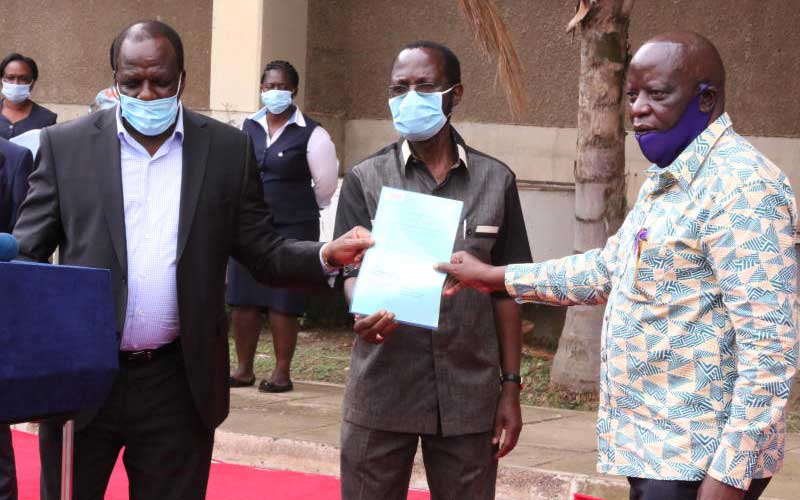×
The Standard e-Paper
Kenya’s Boldest Voice

From left: Council of Governors chair Wycliffe Oparanya, Kisumu Governor Anyang Nyong’o and Kenya Union of Sugarcane Planters and Allied Workers Secretary General Francis Wangara. during the signing of an agreement to resolve the sugar mills leasing plans in Kisumu yesterday. [Collins Oduor, Standard]
The controversial deal to lease out five cash-strapped State owned sugar factories got a major boost after a workers' union that went to court to stop the process withdrew the case.